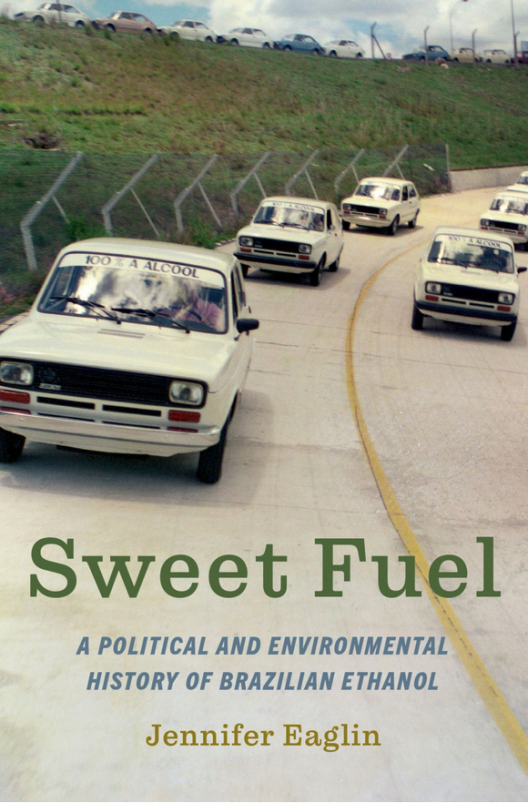Sweet Fuel: A Political and Environmental History of Brazilian Ethanol

As the hazards of carbon emissions increase and governments around the world seek to reduce reliance on fossil fuels, the search for clean and affordable alternate energies has become an increasing priority in the twenty-first century. However, one nation has already been producing such a fuel for almost a century: Brazil. Its sugarcane-based ethanol is the most efficient biofuel on the global fuel market, and the South American nation is the largest biofuel exporter in the world.
Sweet Fuel offers the first full historical account of the industry's origins. The Brazilian government mandated a mixture of ethanol in the national fuel supply in the 1930s, and the success of the program led the military dictatorship to expand the industry and create the national program Proálcool in 1975. Private businessmen, politicians, and national and international automobile manufacturers together leveraged national interests to support this program. By 1985, over 95% of all new cars in the country ran exclusively on ethanol, and, after consumers turned away from them when oil was cheap, the government successfully promoted flex fuel cars instead. Yet, as Jennifer Eaglin shows, the industry's growth came with associated environmental and social costs in the form of water pollution from liquid waste generated during ethanol distillation and exploitative rural labor practices that reshaped Brazil's countryside.
By examining the shifting perceptions of the industry from a sugar byproduct to a national energy solution to a global clean energy option, Sweet Fuel ultimately reveals deeper truths about what a global large-scale transition away from fossil fuels might look like and challenges idealized views of green industries.
ISBN-13: 978-0197510681
ISBN-10: 019751068X
Published March 22, 2022
Publisher: Oxford University Press
280 Pages
16 black and white halftones
Available in print and also as an ebook
Reviews
"Sweet Fuel masterfully recasts the history of both alternative energy and Brazilian agriculture. Eaglin demonstrates that one of the most popular alternative energy sources― sugar-based ethanol―has brought widespread environmental degradation to Brazil. This carefully researched and beautifully written book is a must read for anyone interested in Latin American history and the study of energy more broadly." -- Joel Wolfe, author of Autos and Progress: The Brazilian Search for Modernity
"Sweet Fuel examines an extraordinary national energy transition, a full-scale shift from fossil fuels to biofuels, accomplished independently in a developing nation. Eaglin elucidates the private and political motivations for fueling Brazilian cars with cane sugar as effectively as she reveals the environmental and social costs of converting farms into refineries. An insightfully unique contribution to the growing literature on Latin America's determined search for energy independence." -- Shawn W. Miller, Brigham Young University
"Jennifer Eaglin analyzes the trajectory of Brazilian ethanol through changing dynamics of domestic political-economy tensions, the demand for ethanol-fueled cars balanced against the fuel, technological innovation, global geo-economy, and climate. Eaglin converges these national and global themes with local circumstances to demonstrate the interaction between environmental and labor degradation underpinning much of the environmental violence of poverty that fueled mid-twentieth century development in Brazil. Sweet Fuel creates a multi-dimensional and highly nuanced perspective of energy diversification, providing a major contribution to historians of Brazil, energy, and business as well as to practitioners of energy policy." -- Gail D. Triner, Rutgers University
"As the quest to decarbonize economies becomes imperative to curb global warming, with biofuels as one of the options being debated, Brazil's large-scale historical experience with ethanol deserves to be reassessed. Eaglin's meticulous and creative analysis reveals that the use of biofuels cannot be understood in isolation, just as 'green energy' needs to be connected with a series of other serious problems and challenges that are related to it, such as land ownership, water pollution, labor conditions, and food safety." -- José Augusto Pádua, Federal University of Rio de Janeiro
Investigators
Filters: 2022
